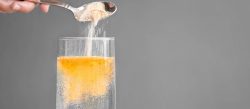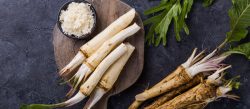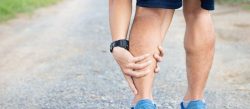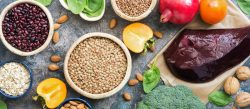PMS: Signs, symptoms and treatment
Published April 6, 2023

Premenstrual Syndrome (PMS) affects up to 50% of menstruating women and peaks among women in their 30’s and 40’s. PMS is a set of psychological and physical symptoms that start anywhere from a few days to two weeks before a woman gets her period.
Symptoms of PMS
PMS can involve psychological symptoms such as irritability, depression, crying/tearfulness, and anxiety, exhaustion, listlessness and insecurity. Physical symptoms can include abdominal bloating, breast tenderness, and headaches, back pain, joint and muscle aches and skin blemishes. Nature’s Own Vitamin B6 100mg relieves premenstrual tension symptoms (PMS) and supports energy production and mental function.
What causes PMS?
The causes of PMS are not clearly defined. But hormonal fluctuations during a women’s menstrual cycle are thought to play a key role. One theory is some women are sensitive to the substances produced by the break down of progesterone pre-menstrually. Genetics and environmental factors are also likely to impact PMS symptoms as are lifestyle factors including caffeine intake, high stress, higher body mass index, cigarette smoking and alcohol use.
How is PMS diagnosed?
Your health practitioner will ask what symptoms you have and when you have them. He or she will also want to rule out other conditions that can cause similar symptoms, such as depression, thyroid problems or irritable bowel syndrome.
Keeping a symptom diary can help you track your symptoms so you can discuss them with your healthcare practitioner.
Top 10 tips to help manage PMS
There are many things you can do to ease your PMS symptoms; these can include:
Quitting smoking
Smoking and exposure to passive smoking have been linked to an increase in PMS symptoms. Quitting smoking may help reduce your PMS symptoms
Exercise
Exercise not only helps you maintain a healthy weight but also boosts chemicals in the brain that makes you feel happier and reduce inflammation. Exercise has been shown to reduce PMS symptoms and help reduce stress.
Reduce stress
Studies have shown that women working in stressful jobs have more PMS symptoms and measures taken to reduce stress have helped PMS symptoms. Try your favourite exercise, gardening or meditation to help reduce stress.
Reduce your alcohol consumption
Consuming more than the recommended standard drinks per day for women has shown to increase in PMS symptoms. Reducing your alcohol consumption may help reduce your PMS symptoms.
Reduce caffeine
Multiple studies have looked at caffeine and PMS symptoms. Some studies have shown reducing caffeine intake can help reduce PMS symptoms. Others have had conflicting results. Try reducing caffeine for yourself to see if it helps your symptoms.
Add calcium to your diet
Calcium relieves symptoms of pre-menstrual tension and supports a healthy menstrual cycle. You can find calcium in firm tofu, canned fish, yoghurt and dairy, leafy green vegetables, nuts and seeds. Vitamin D is found in salmon, herring, mackerel, and eggs, margarine and plant milk fortified with vitamin D and healthy exposure to sunlight.
What about chocolate?
A study comparing 1257 women with clinician-diagnosed PMS, with 2463 women without PMS symptoms indicated a higher intake of stearic acid may be associated with a lower risk of developing PMS symptoms. Stearic acid is a fatty acid found in cocoa butter. While further research is needed into the links between stearic acid consumption and PMS symptoms, maybe the occasional chocolate bar may be beneficial?
Eating a healthy diet, exercising and taking the time to reduce your stress can help alleviate your PMS symptoms. Avoiding cigarette smoke, reducing caffeine and alcohol may also reduce your PMS symptoms and improve your overall quality of life. Keeping a symptom diary can help you record your symptoms to share with your healthcare practitioner so you can work out a plan to reduce your symptoms.
Always read the label and follow the directions for use. If symptoms persist talk to your health professional.
MAT-AU-2300770
Learn about which Nature's Own product may be appropriate for you.
SEE THE PRODUCTS HERE







